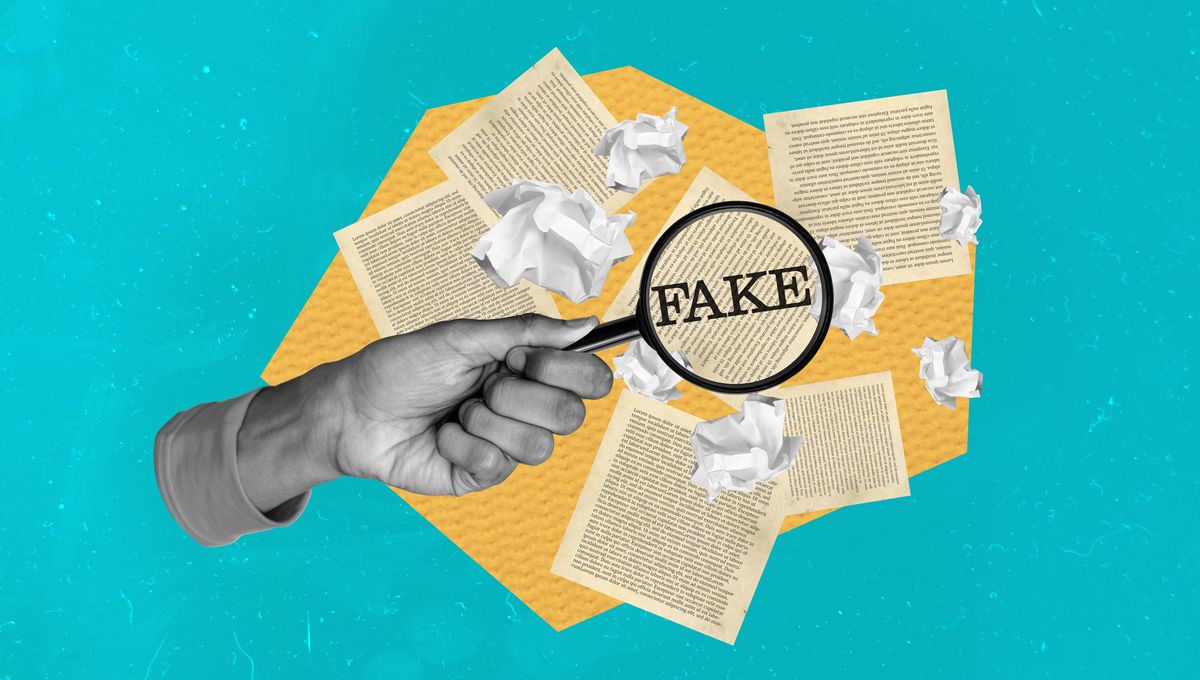The intersection of belief systems and contemporary issues such as conspiracies and pseudoscience presents a rich tapestry for exploration within the context of Bahá’í teachings. How often do individuals find themselves wandering through a labyrinth of misinformation, grappling with notions that straddle the line between fact and fantasy? In an age rife with digital communication, navigating the intricacies of truth and deception has become increasingly challenging. It is not solely the responsibility of individuals but also a communal endeavor to cultivate discernment and promote understanding.
The Bahá’í perspective offers a multifaceted approach to the phenomena of conspiracies and pseudoscience. Rooted in principles such as the unity of humanity, the search for truth, and the importance of scientific inquiry, the Bahá’í teachings serve as a compass guiding adherents through the murky waters of misinformation. This essay endeavors to elucidate these teachings while providing a framework for discerning fact from fantasy.
At the heart of Bahá’í teachings lies an unequivocal emphasis on the pursuit of truth. Bahá’u’lláh, the founder of the Bahá’í Faith, posited that truth is a catalyst for unity and progress. This brings us to a pivotal question: How do personal biases and cultural contexts influence our perceptions of truth? Recognizing that each individual harbors unique experiences is crucial in understanding the inherently subjective nature of truth. The Bahá’í insistence on independent investigation of truth necessitates that individuals engage critically with the information they encounter, fostering an environment where inquiry is valued over blind acceptance.
Contrary to the principles of fair inquiry lies the realm of conspiratorial thinking, which often thrives on a foundation of distrust and suspicion. This challenge invites Bahá’ís, and indeed all individuals, to reflect upon their epistemological frameworks. The allure of conspiracy theories stems from their capacity to provide simplified narratives in a complex world—the desire for clarity in uncertainty. Herein lies a substantial contradiction: while the simplicity of these theories can be comforting, they often obscure deeper truths. The Bahá’í approach calls for an unwavering commitment to evidence and rational discourse, discouraging the embrace of ideas that lack substantiation.
Pseudoscience, akin to conspiracism, presents another challenge that calls for scrutiny. The blending of scientific jargon with untested claims creates a façade of legitimacy, rendering it crucial to discern scientifically valid assertions from those that bear no empirical weight. The Bahá’í Teachings advocate for the integration of science and religion as complementary forces that bolster human understanding. This holistic worldview posits that genuine scientific inquiry should be embraced, while ideas lacking rigorous methodological support should be approached with skepticism.
One of the fundamental Bahá’í principles in combating pseudoscience and conspiratorial narratives is the promotion of education. Education, as a transformative tool, empowers individuals to cultivate critical thinking and analytical skills essential for discerning the veracity of information. In light of this, how can communities cultivate environments conducive to learning? By fostering dialogue that encourages questioning rather than dogma, individuals can engage in fruitful exchanges that illuminate darker corners of ignorance. Collaboration between scientific communities and spiritual organizations can facilitate a collective elevation of consciousness, urging society toward a more nuanced understanding of truth.
Furthermore, the notion of service to humanity, entrenched in Bahá’í philosophy, provides an imperative for addressing the harm generated by misinformation. Outlandish claims and unfounded theories can lead to societal discord, damaging relationships and eroding trust. Thus, Bahá’ís are called to actively counteract the spread of falsehoods through compassionate discourse aimed at correction and understanding. This imperative stresses the importance of empathetic communication, as it fosters connections and opens avenues for collaboration in the pursuit of knowledge.
The Bahá’í teachings place a significant emphasis on the principle of consultation. This process, rooted in collective decision-making, offers a framework for addressing complex issues, including the prevalence of conspiracy theories and pseudoscience. How does this principle apply to navigating misinformation? By engaging in thoughtful consultation, individuals and communities can collectively analyze and challenge prevailing narratives. The diverse perspectives offered during this process can unveil blind spots, ensuring a more comprehensive examination of issues at hand.
In the quest to separate fact from fantasy, accountability plays a crucial role. The Bahá’í teachings advocate for personal responsibility in analyzing and disseminating information. This generates a culture of transparency, where individuals are encouraged to hold one another accountable while fostering an atmosphere where the pursuit of truth is celebrated. With the proliferation of information at our fingertips, reclaiming agency in our interactions with knowledge is more crucial than ever.
The challenge extends beyond individual efforts; it requires a communal commitment to integrity in the quest for understanding. As we immerse ourselves in dialogues that unveil the essence of truth, we inevitably embark on a collective journey toward enlightenment. The teachings of Bahá’u’lláh remind us of our responsibility to exemplify virtues such as honesty, humility, and integrity as we navigate through the quagmire of misinformation.
In conclusion, the task of separating fact from fantasy within the realms of conspiracies and pseudoscience is monumental yet achievable. Embracing the Bahá’í teachings, individuals can establish a foundation built upon the pursuit of truth, education, and community engagement. As we confront a tide of misinformation, let us ask ourselves—how can we cultivate a culture of inquiry that fosters understanding and illuminates the path to progress? The answer lies within each of us and our collective endeavors.
